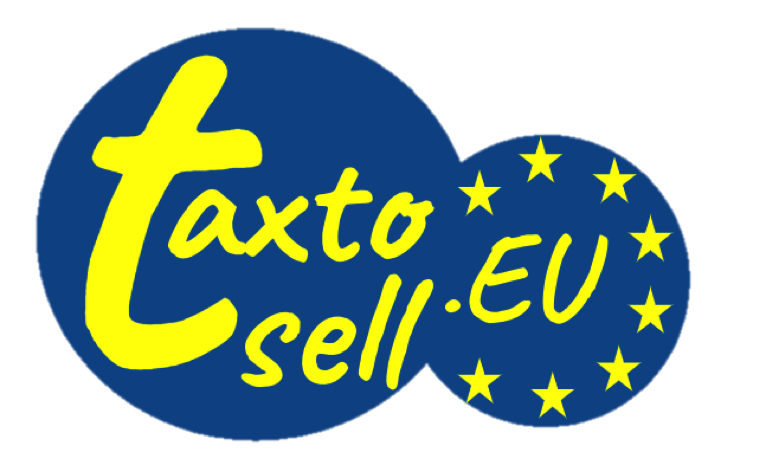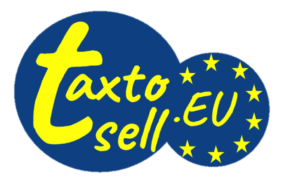This article has been written after the the substantial change in VAT regulation of July 2021.
Value added tax (VAT) is an essential part of the Lithuanian tax system which affects both businesses and individuals. Understanding the different VAT rates, the requirements to register for VAT and how VAT works in Lithuania is crucial to complying with the law and avoiding costly penalties. In this comprehensive article, we will deal with everything you need to know about VAT in Lithuania, including the possibility of a reduced VAT rate for energy companies and the use of the reduced-rate keyword. Whether you are an entrepreneur, an accountant or an individual taxpayer, this guide will provide you with the necessary knowledge and perspective to develop you with confidence in the Lithuanian VAT system.
General description of VAT in Lithuania
If you are thinking of opening a company in the country, it is important that you know the tax laws and regulations. Value Added Tax (VAT) is an indirect tax on the value added to products and services during the production chain. It is estimated to account for approximately 20% of state taxes. The standard rate of VAT in Lithuania is 21%, although there are reduced rates of 5 and 9 available. In addition, energy companies are eligible for reduced VAT to reduce the VAT rate to 9%.
You need to register for VAT purposes if your taxable supplies exceed EUR 45,000 per year. Even if this is not the case, you can choose to register voluntarily, which can be beneficial for your company. When buying real estate, it is important to know the applicable VAT rate. It is usually 21%, although there are certain assumptions where reduced rates of 10%, 4% and 5% can be applied.
VAT rates in Lithuania
Understanding the nuances of taxation in Lithuania is essential for any company operating in the country. One of the most crucial considerations is the various types of taxation that exist. Standard taxation is 21%; however, some products and services may be subject to lower prices, 5% or 9%, such as food, pharmaceuticals and books. In addition, energy companies can potentially benefit from a reduction in the tariff to 9%.
It is also important to understand the components of VAT payments. The VAT generated includes the amount that a company charges to its customers, while the VAT deducted is the amount that a company pays to its suppliers. The standard rate of 21 applies, along with lower prices of 10%, 4 and 5%. Knowing the different VAT rates and elements is essential to calculate and declare it correctly. By knowing the details of VAT in Lithuania, companies can guarantee their compliance with tax regulations and take advantage of the reduced rate for energy companies.
Requirements to be discharged on VAT in Lithuania
In order to be able to discharge in the Value Added Tax in Lithuania, there are certain prerequisites that companies must meet. The principal is that the company has a legal establishment or a fixed address in the country. They also need to obtain a tax identification number and are registered with the local tax authorities. Even non-residents who provide taxable services in Lithuania should be discharged into VAT, irrespective of whether or not a fixed establishment is present, in line with the rules laid down by other European countries.
In addition to this, VAT-registered companies in Lithuania must keep accurate accounts. This involves documenting all sales and purchases, as well as any Value Added Tax charged or received. In addition, companies should regularly submit VAT returns, with information on their taxable deliveries and the input VAT. The lack of adequate accounting records or timely filing of the declarations will result in penalties and fines from the Lithuanian tax authorities.
Finally, all companies registered for VAT purposes in Lithuania must comply with the local VAT directives. This involves applying the applicable rate of Value Added Tax to all taxable deliveries, as well as issuing legitimate VAT invoices to customers. In addition, companies must ensure that they do not claim VAT incurred for goods or services that are not related to their operations. In conclusion, meeting these conditions is essential for businesses that want to do business in Lithuania and meet the country’s Value Added Tax rules.
Acquisitions and intra-Community deliveries in VAT
When it comes to taxation, it is vital to be familiar with the concept of intra-Community acquisitions and deliveries. In the Republic of Lithuania, if a company acquires goods or services from another EU member country, it is considered an intra-Community acquisition. Conversely, if a company downloads goods or services in another EU member country, it is considered an intra-Community delivery. Both transactions are subject to VAT, but there are particular rules and regulations that must be met. By way of example, the VAT rate applied to intra-Community acquisitions and deliveries in Lithuania is based on the European VAT rules, an organisation which strives to unify VAT rules across the EU.
It is important to bear in mind that companies carrying out intra-Community acquisitions and deliveries are required to register for VAT purposes in Lithuania. Failure to do so can lead to sanctions and legal consequences. In addition, intra-Community operators must keep comprehensive records of all intra-Community transactions, including receipts and invoices. This is because the Lithuanian tax authorities can request this information in the framework of a VAT audit. In conclusion, knowing the rules and requirements regarding intra-Community acquisitions and deliveries is necessary for any company operating in Lithuania and wishes to comply with the VAT rules (complete guide on EU VAT rules) and to avoid any legal problems related to VAT EU.
Value Added Tax (VAT) on the purchase of real estate in Lithuania
Taxes on the purchase of real estate in Lithuania are subject to Value Added Tax (VAT). This levy is imposed at the standard rate of 21%, although some exceptions may apply, such as a reduced rate of 9 for residential buildings. It is important to bear in mind that VAT may vary according to the type of good and its intended use, and that the rules governing VAT in Lithuania are in line with that of the European Union (EU).
When buying a property in Lithuania, it is essential to understand the VAT payment process. This tax is included in the purchase price and must be paid by the buyer, who can deduct the amount of his future VAT obligations. The seller, for his part, is obliged to issue an invoice including the amount of VAT. Please note that, in certain cases, the seller may be exempt from VAT, which means that no such payment is required.
VAT on property transactions can be a complex matter, so it is advisable to seek professional advice before buying or selling a property in Lithuania. This will ensure compliance with all relevant EU VAT laws and regulations.
How VAT works in Lithuania
Knowing the details of Value Added Tax is paramount for anyone who wants to operate in this country. This indirect tax taxes the value added at each stage of production. Thus, the final consumer pays the full amount of the charge, included in the cost of the goods or service. In Lithuania, there are several types of vat, including normal and diminished rates, which depend on the nature of the goods or activity.
A fundamental part of the VAT payment is the VAT generated and the VAT deductible. The first is the sum of the VAT that a company charges its customers for the goods or services provided. The deductible VAT is the part of the tax that can be deducted from the amount due to the Administration. This is done by subtracting the VAT from the products and services purchased from the VAT charged for the items sold. It is essential to understand these components in order to correctly present and pay VAT obligations.
When it comes to the purchase of real estate, there are some particular regulations applicable in Lithuania. For example, if a person acquires a property from a registered company for VAT purposes, he/she must pay the tax on the purchase price. The general rate for the acquisition of real estate in Lithuania is 21%. However, there are certain exceptions, for example when the building is acquired as usual housing. It is necessary to familiarise themselves with the various types of VAT and how they operate in different situations related to the purchase of real estate in Lithuania.
For any question regarding VAT in EU you can ask our Free Online VAT Consultant.
Conclusion
In conclusion, VAT is an important tax in many countries, including Lithuania. Understanding the different types of VAT rates and the requirements to register is crucial for companies operating in the country. It is also important to bear in mind that VAT rules may vary from one country to another, as seen in the comparison with Austria. In general, VAT plays an important role in the economy and finances of vat countries, and it is essential to stay informed and comply with the rules.

